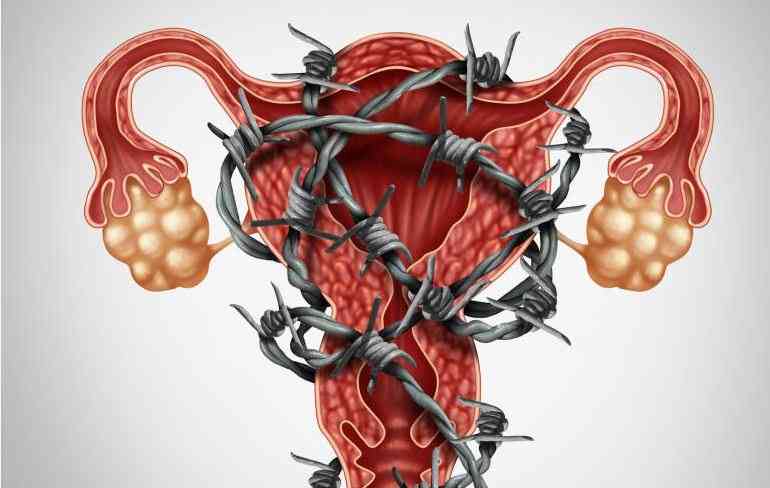
“I am not going to die. I am young and I have dreams.” This was the conviction of Wairimu Ndung’u, a 33-year-old customer executive at a Safaricom, where her boss Bob Collymore lost the battle to acute myeloid leukemia in the wee hours of July 1, 2019.
Wairimu, a survivor of the same cancer, lives — proof that the monstrous disease can be fought and beaten hands down.
The death of her CEO hit Wairimu hard, taking her back to the beginning of 2016 when she received the chilling diagnosis of an ailment many thought she would not survive.
Cancer is ranked the third cause of death in Kenya, wiping over 28,000 lives every year. It is a major source of psychiatric morbidity with about 50 per cent of cancer patients suffering from a psychiatric disorder.
The common disorders are adjustment disorder, depressive illnesses, anxiety and cognitive disorders according to Ministry of Health, National Guidelines for Cancer Management in Kenya, 2013.
“I was okay. I went to hospital to check on my constant headaches which I would numb with a dose of Betapyn painkillers,” says Wairimu recalling her battle with a disease that is turning out to be a major source of anxiety, despair and tears among many families across Kenya.
The Grim Reaper that it has become, cancer has no respect for gender, age or social status — the rich and poor fall victim as researchers scratch their heads in search of a cure while medics struggle to alleviate pain for patients.
“Two tablets in the morning and two at bed time,” recalls the Safaricom employee about her initial battles with the frequent headaches.
Her headaches were accompanied by unusually heavy monthly periods towards the end of 2015. Wairimu who has a fair complexion also noticed bruising marks on her arms.
“But since I had just come from shags, I thought I had sustained them while doing chores in the village,” she says.
Wairimu thought the headaches were linked to a problem with her spine as the pains would originate from her back. The situation was aggravated by intense fatigue which she would experience all the time at work.
But this she ignored, never imaging that the constant irritations were symptoms of a bigger and sinister malaise.

When she went for a proper examination, the doctor diagnosed her with anaemia and prescribed blood boosters, advising further tests that were conducted on one morning of January 2016. This was the turning point in her life.
That dark January morning, she walked into the hospital with a mere headache but left with news that would change her life forever.
The doctor recommended some tests including, full blood picture, platelet count, Paps smear and an ultra sound. Wairimu was then admitted to hospital for further review.
“Dr Nicholus Ndungu, the specialist who saw me, recommended a few more tests including a bone marrow biopsy and a test for Lupus,” she says. Only one sample of those sent to South Africa turned out to be positive.
A few days into admission at Nairobi Hospital, Wairimu was diagnosed with acute myeloid leukemia, a cancer of the myeloid line of blood cells, characterised by the rapid growth of abnormal cells that build up in the bone marrow and blood and interfere with normal blood cells.
She had never heard of this cancer nor did it exist in her family. At 31, cancer was the last thing on her mind.
“Cancer of the blood... leukemia. I cried, I stood up in a room and went to a corner and sat down again and cried helplessly. I was scared. Nurses tried to calm me down. I was speechless. The biggest dilemma was how I was going to live with this situation? I wished this was a dream I was going to wake up from,” remembers Wairimu.
The first person she broke the news to was her pastor back at home who gave her hope that she would live because she was healthy unlike her older friend who had succumbed to cancer.
“I cried to him. He didn’t believe it, no one believed it. My sister who is a nurse and married to a doctor pleaded with me not to Google anything about myeloid leukemia. I called my current pastor. He didn’t believe me, my brother was badly affected but my brother in law encouraged me that I was young enough to beat it,” she says.
Wambui who was not even dating started wondering from what she believed was her ‘death bed’, “Why I didn’t have a boyfriend?”
Because of the aggressive form of her cancer, doctors recommended immediate treatment.
“A counsellor took me through the treatment plan and side effects,” says Wairimu who started chemotherapy the following day.
Chemotherapy: Six months of hell
The chemotherapy was a torturous journey.
“The third session of chemo almost killed me and for one moment I thought about my funeral for the first and final time,” she reveals.
Chemo damages mucus linings from the month to the stomach. “It was very painful. Pain that I cannot describe. It leaves you anxious and with a sick feeling all the time,” adds Wairimu.
The mere thought that she was a cancer victim fuelled Wairimu’s agony despite the treatment and encouragement from family and colleagues at work.
She experienced all the side effects including nausea and constipation.
“Somewhere in between the sessions, I started hemorrhaging; bleeding big clots for days,” she recalls.
Wairimu also had to deal with mouth sores, very high and constant fever at 40 degrees and above, chills, hair loss and a constant feeling of sickness.
“I could not eat through the mouth and was only fed intravenously. Later on when the effects wore off, I took blended food. I could not even drink water. My mother who was my home caregiver never left my side, thinking I would cross over any minute.”

Three intense chemo sessions between January and April meant she had to take leave from work.
She however lauds her employer Safaricom for paying her salary including the annual bonus.
“I went back to work at the end of June 2015 to my very supportive colleagues whose blood runs in my veins,” says Wairimu, ever thankful to her colleagues who were always on standby to donate blood.
“My manager would ferry my colleagues to hospital each time I needed blood. All I needed to say was how many people I needed,” she says.
“Right now, I get special treatment as my arm was badly affected by chemo,” she says.
Cancer treatment is costly but luckily for Wairimu, her work medical cover took care of the bills which ran into millions.
A survey by the National Cancer Control Programme in conjunction with National Cancer Institute (Kenya) established that it costs between Sh172,000 and Sh759,000 to treat cervical cancer exclusive of surgery. In case of an operation, the cost ranges between Sh672,000 and Sh 1.25million.
Patients in need of basic treatment for breast cancer cough between Sh175,200 and Sh1.98 million. However the cost goes up to between Sh 758,000 and Sh 2.48 million when surgery is required in the event of quadrantectomy, lumpectomy, partial mastectomy or segmental mastectomy.
Treating prostate cancer within Kenya requires between Sh138,000 and Sh1.21 million while esophageal cancer costs between Sh1 million and Sh126,000.
The costs exclude supportive and rehabilitative care and further investigations undertaken during treatment, according to the research.
Concerned with the increasing magnitude of the disease, the ministry of Health prepared the National Cancer Control Strategy 2017-2022 to put forward specific interventions towards prevention and control.
It is almost three years and Wairimu is in complete remission which means that tests, physical exams, and scans show that her cancer is gone.
And her life, thank God, has changed.

Life after cancer
The day Wairimu’s hair grew back into a ponytail, she celebrated the huge milestone on social media.
“Seeing my hair grow was a real highlight and a blunt reminder that I survived this monster called cancer,” she says adding: “Healing is in the mind and I knew I was going to be okay.”
Wairimu advises that just like the late Janet Ikua had said, cancer victims need prayer warriors because, “When you are sick, you cannot even pray.”
Today, Wairimu stays positive in every situation.
“I know what I want and I don’t want to waste time. I am working on better investments and maintaining good relations,” says the customer care expert.
“I was a loner before my illness, but I almost died and need to be with people. My life has changed.”
She goes back for medical assessment after every two weeks.
“Everything is okay and my doctor is actually very happy with my progress,” she declares.
Just like Wairimu, many people suffer without initially knowing they are victims of cancer. While the few lucky ones able to discover the nature of their ailment, choose to hide from either relatives or friends.
Yet the burden of cancer at the macro and micro level is not only huge but is compounded by the inability of a majority to access proper and affordable medication.
What's the best prank you've played on someone? The Standard Group Plc is a multi-media organization with investments in media platforms spanning newspaper print
operations, television, radio broadcasting, digital and online services. The Standard Group is recognized as a
leading multi-media house in Kenya with a key influence in matters of national and international interest.
The Standard Group Plc is a multi-media organization with investments in media platforms spanning newspaper print
operations, television, radio broadcasting, digital and online services. The Standard Group is recognized as a
leading multi-media house in Kenya with a key influence in matters of national and international interest.










